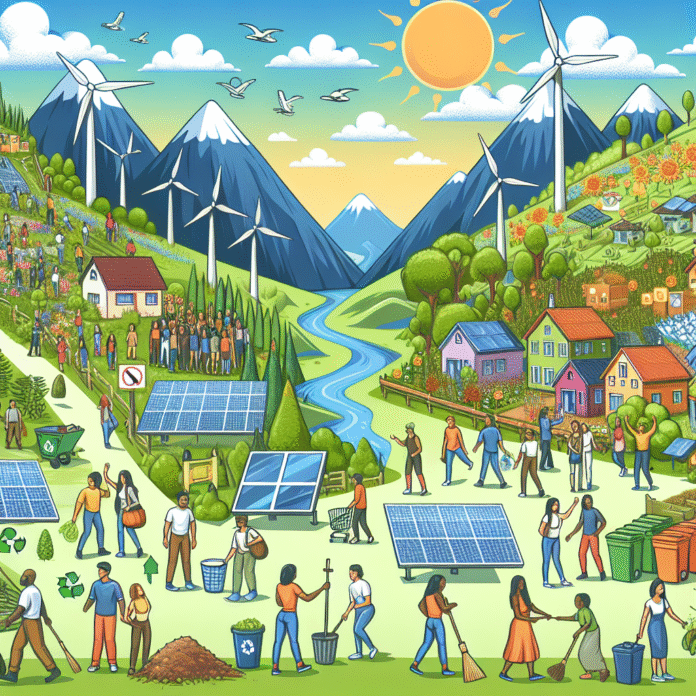Mountain Communities Tackle Climate Change Challenges
“`html
Mountain Communities Confront Climate Change Challenges
Mountain communities are increasingly facing the impacts of climate change, prompting innovative solutions and collaborative efforts to adapt and thrive. Rising temperatures, changing precipitation patterns, and extreme weather events are reshaping the landscapes and economies of these regions, necessitating a proactive approach to environmental sustainability.
Understanding the Impact
As global temperatures rise, mountain ecosystems are experiencing significant shifts. Glaciers are retreating, which not only affects water supply for local communities but also disrupts ecosystems that depend on glacial meltwater. Additionally, altered weather patterns can lead to more frequent landslides, forest fires, and habitat loss, threatening both biodiversity and human livelihoods.
Community Initiatives and Solutions
In response to these challenges, mountain communities are implementing a variety of initiatives aimed at fostering resilience. Local governments, NGOs, and residents are collaborating on projects focused on sustainable agriculture, renewable energy, and conservation efforts. For instance, many communities are investing in solar energy and energy-efficient technologies to reduce carbon footprints and increase energy independence.
Education and Awareness
Education plays a vital role in equipping residents with the knowledge to combat climate change effectively. Workshops and programs designed to raise awareness about sustainable practices, such as water conservation and wildlife protection, are being introduced in schools and community centers. These initiatives not only empower individuals but also foster a collective sense of responsibility towards the environment.
Policy Changes and Advocacy
Advocacy for policy changes is crucial in addressing climate change at a broader level. Mountain communities are engaging with policymakers to promote sustainable land use, protect vital ecosystems, and secure funding for climate resilience projects. By voicing their unique challenges and perspectives, these communities are influencing state and national climate policy.
Looking Ahead
As mountain communities continue to navigate the complexities of climate change, their experiences and resilience can serve as a model for other regions facing similar challenges. By embracing innovative solutions and fostering collaboration, these communities are not only adapting to change but also setting a precedent for sustainable living in the face of adversity.
“`
This version expands on the original article’s themes, providing additional details while maintaining a focus on the challenges and responses of mountain communities facing climate change.


